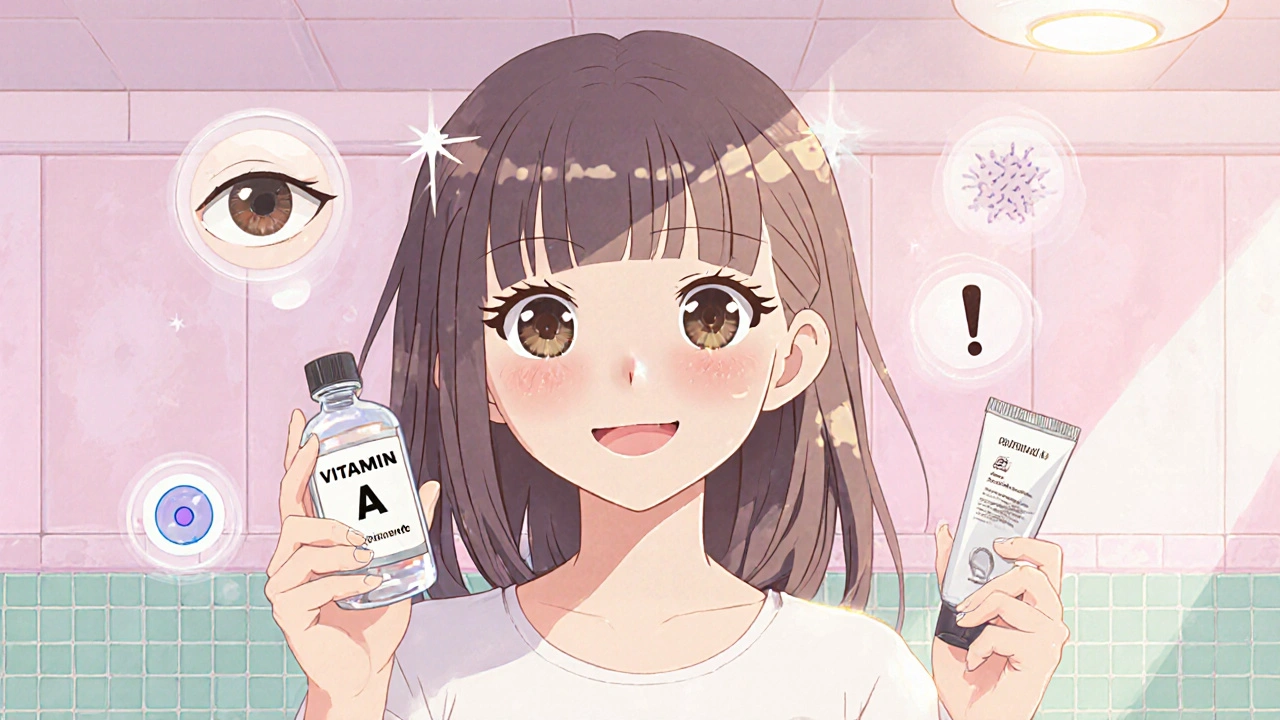Isotretinoin Safety: What You Need to Know Before Taking It
When it comes to treating severe acne, isotretinoin, a potent oral medication used for stubborn, cystic acne that doesn’t respond to other treatments. Also known as Accutane, it’s one of the most effective drugs for clearing acne—but it’s not without serious risks. This isn’t a typical pill you take and forget. Isotretinoin works by shrinking oil glands, reducing bacteria, and calming inflammation, but that same power means your body reacts strongly. Many people see dramatic results, but others face side effects that can be hard to manage. That’s why isotretinoin safety isn’t just a checklist—it’s a conversation you need to have with your doctor before starting.
One of the biggest concerns around isotretinoin safety is its impact on mental health. While not everyone experiences it, there are documented cases of depression, anxiety, and even suicidal thoughts linked to the drug. It doesn’t mean you’ll feel this way, but you need to know the signs: feeling hopeless, losing interest in things you used to enjoy, or withdrawing from friends. If you notice these, stop taking it and call your doctor immediately. Another major risk is birth defects. Isotretinoin is strictly off-limits during pregnancy, and even a single dose can cause severe malformations. That’s why women of childbearing age must use two forms of birth control, get monthly pregnancy tests, and sign paperwork confirming they understand the risks. The FDA’s iPLEDGE program exists for one reason: to make sure no one gets pregnant while on this drug.
Isotretinoin safety also involves monitoring your body closely. Dry skin, cracked lips, nosebleeds, and muscle aches are common—but if you start having vision changes, severe stomach pain, or yellowing of the skin, that’s a red flag. Liver enzymes and cholesterol levels can rise, so blood tests are required before and during treatment. You also can’t drink alcohol while taking it—it increases liver stress. And don’t even think about getting a tattoo or piercing while on isotretinoin; your skin heals slower, and infections become more likely. Even something as simple as waxing or laser treatments should be avoided for at least six months after stopping, because your skin is more fragile.
People often ask if isotretinoin is worth it. For many, the answer is yes—clear skin can change your life. But it’s not a quick fix, and it’s not risk-free. The goal isn’t just to treat acne, but to do it safely. That means being honest with your doctor, following every test schedule, and paying attention to how your body feels every day. This isn’t a drug you take lightly. It’s a tool that works wonders when used right, but can cause harm if ignored. Below, you’ll find real-world experiences and detailed guides on managing side effects, understanding monitoring protocols, and making informed choices about your treatment path.

